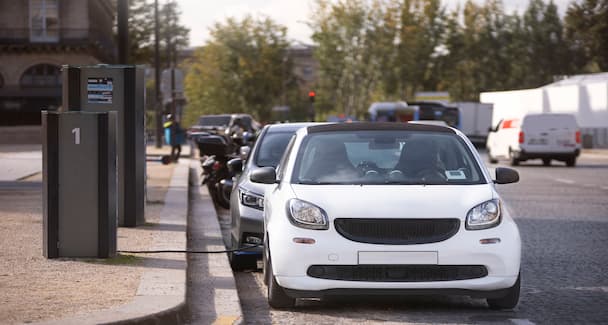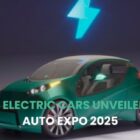When And How Should You Use A DC EV Charger?
Electric vehicles are turning out to be more well known consistently, and with justifiable cause. In any case, when is the perfect opportunity to utilize one, and how precisely do you go about it?
This guide will walk you through all that you really want to be aware of when and how to involve this unique charger for your electric vehicle. We’ll keep things straightforward, so don’t bother agonizing over interesting terms!
During Long Travels
In the event that you’re arranging a long excursion, quick chargers can be lifelines. Since electric vehicles have a restricted reach, it’s essential to re-energize the battery when expected to try not to get abandoned. For this situation, a quick charger can assist you with getting back out and about rapidly so you don’t go through hours holding up at a charging station. Many significant roadways have DC ev charging stations in Delhi set en route.
While You’re Running Short on Time
Once in a while, life gets going, and you lack the opportunity to sit around idly for your vehicle to charge. Whether you have an arrangement, are late to work, or just should be somewhere quick, a speedy top-up at a quick charger can make all the difference. It’s ideally suited for those times when it consistently counts.
In Crisis Circumstances
Picture this: you’re getting things done, and you abruptly notice your battery is a lot lower than anticipated. A quick charger close by can rapidly give you the additional power you really want to return home or finish your day without stress. You will not need to stand by lengthy, and your vehicle will be sufficiently charged to get you to where you should be.
At the point when You Shouldn’t Depend on Quick Charging
Albeit quick chargers are advantageous, they aren’t something you ought to utilize constantly. There are sure times while utilizing slower charging at home or a customary charging station checks out.
For Regular Use at Home
In the event that you’re at home and don’t have a place to go in a rush, utilizing a slower charger is better. Home charging stations are ideal for short-term charging. Your vehicle will be completely energized and all set before sun-up. Since slow charging is gentler on the battery, it can assist with expanding the existence of your battery, as well.
To Save money
Quick charging can be more costly contrasted with charging at home. In the event that you’re attempting to set aside cash, it’s smart to design the vast majority of your charging when time is on your side. Charging for the time being or when you’re working can be more financially savvy, particularly in the event that your home has sunlight based chargers or you live in a spot with less expensive power rates during off-top hours.
To Safeguard Your Battery’s Life expectancy
Very much like the way in which you shouldn’t quickly charge your telephone constantly, it’s no different for your EV. Charging too quickly again and again can gradually wear out your battery after some time, which can decrease its general exhibition. This doesn’t mean you ought to never utilize a quick charger, yet it’s great to stir it up with slower charging whenever the situation allows.
The most effective method to Involve a Quick Charger for Your EV
Since it has become so obvious when it’s a good idea to utilize one, we should get into how to utilize one in fact. Fortunately, the cycle is genuinely straightforward.
Stage 1: Track down a Station
The initial step is to find a nearby quick charging station. Numerous applications are accessible that can show you where the nearest charging stations are, and even let you know whether they’re being used. Some well known applications incorporate PlugShare and ChargePoint, however numerous EV brands additionally have their own applications that assist you with tracking down stations. Most stations are situated very still quits, malls, and corner stores.
Stage 2: Plug in Your Vehicle
When you show up at a station, track down the charger and fitting it into your vehicle. Various EVs might have different fitting sorts, yet many stations have an assortment of connector choices to make it simpler for a wide range of vehicles to charge. Try to choose the right one for your vehicle.
Stage 3: Begin Charging
After you’ve connected, adhere to the directions on the station’s screen. You might have to utilize an application, a card, or a vital coxcomb to begin the charging system, contingent upon the station.
Stage 4: Watch out for the Battery Level
Most electric vehicles can energize to 80% moderately rapidly, yet from that point forward, the running after speed eases back. On the off chance that you’re in a rush, it’s generally best to turn off your vehicle once it hits 80% and drive. In the event that you really want a full charge, you can hang tight for it to reach 100 percent, yet remember that the last 20% can take a piece longer to finish.
Stage 5: Turn off and Pay
When your vehicle has completed the process of charging, you just turn off it and go on your way. A few stations might charge you an expense, so try to check the amount it will cost prior to beginning your charge. You can pay utilizing the equivalent application or card you used to begin the charging system.
Ways to capitalize on Quick Charging
Quick charging is a fabulous choice, however there are a couple of things you can do to make the experience surprisingly better.
Plan Your Course
In the event that you’re going on a long excursion, it’s brilliant to design out where you’ll stop for a charge somewhat early. Search for stations along your course and plan to pursue when you’re at around 20% battery. This will give you some support on the off chance that you run into traffic or surprising re-routes.
Keep Your Charging Link Clean
Albeit the charging stations are intended to be weatherproof, it’s as yet really smart to keep the charging link perfect and liberated from soil. This guarantees a strong association between the charger and your vehicle, which can make the charging system faster and more secure.
Deal with Your Battery
As referenced before, utilizing quick chargers again and again can wear out your battery after some time. Attempt to stir up your accusing everyday practice of slower charging at whatever point you can. Keeping your battery somewhere in the range of 20% and 80% more often than not can likewise assist with expanding its life expectancy.
Wrapping It Up
Quick chargers are an extraordinary instrument for electric vehicle proprietors, particularly during long outings or when you want to top up your battery rapidly. They give a helpful method for charging your vehicle quicker than conventional chargers. In any case, they aren’t something you want to depend on for regular charging. Slower, at-home charging is in many cases better for your vehicle’s battery and can set aside your cash over the long haul.
By knowing when and how to utilize quick chargers, you’ll take advantage of your electric vehicle without stressing over running out of force at some unacceptable time. With increasingly energizing stations popping the nation over, possessing an EV is becoming simpler and more fun than any other time!










